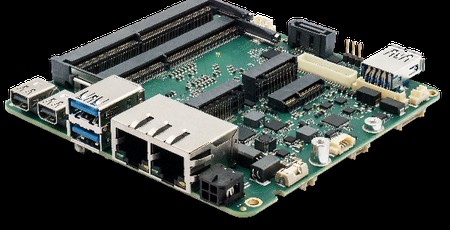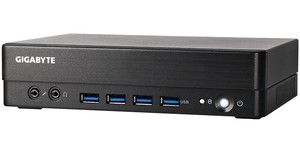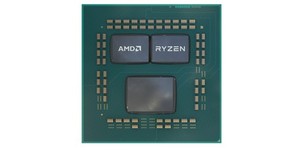AMD steps into the mini PC market to challenge Intel's hold
December 4, 2019 | 13:32
Companies: #amd

AMD has announced it's stepping into the Mini PC market, presumably in a bid to directly compete with Intel's already-successful NUC range.
ASRock Industrial, EEPD, OnLogic and Simply NUC will be the first OEMs to offer and sell these new AMD-based Mini PC platforms, with AMD opening up the ecosystem for other companies to join in future. The Mini PCs will be powered by Ryzen Embedded V1000 and R1000 processors.
While Intel's approach has involved developing the motherboards required then selling them to third-party vendors to add their own features, AMD's plans are squarely focused on enabling this ecosystem where the processors form the basis of its partners' designs.
The thinking is that initially these systems will be targeted towards the media, industrial, communications, and enterprise markets, rather than the consumer space. If it goes anything like Intel's NUC market, however, expect such systems to spread to more mainstream uses over time. That already seems reasonably likely given that one plan by ASRock is to use its 4X4 Box for home-entertainment purposes, as well as industrial applications.
Currently, the main restriction comes from the R1000-series chip that's being used. The R1606G and R1505G chips use two cores and four threads, with the R1606G's clock speed at 2.6GHz with a boost speed of 3.5GHz, and the R1505G slightly slower at 2.4GHz and 3.3GHz, respectively. They've primarily been used in the past on handheld gaming devices rather than consumer PC use. That means they come as BGA-mounted SoCs so they won't install in a regular desktop PC motherboard. They also feature Zen+ CPU cores that pair with the Vega 3 graphics engine.
We'd assume, in future, that Navi graphics engines could also form a part of AMD's plans. For now, such limitations should be useful for businesses who are keen to have a small-form-factor box that's speedy but low hassle. AMD promises to include in-depth security features and plans for a ten-year processor availability period.
Some of this is thanks to AMD's open software approach through its use of Radeon Open Compute (ROCm) and OpenCL. The company reckons this makes it perfect for running "software for machine vision, object detection, edge inference, and analytics."
Ultimately, AMD believes that these processors will provide 'scalable solutions...that [will] power high resolution, 4K multi-display configurability, high-performance 3D graphics' while lowering customer costs.
It's relatively early days yet for the technology, but Intel should probably be slightly nervous. Given the news that more enthusiasts are choosing AMD over Intel than before, it's clear that AMD is keen to build upon its success by infringing on territory previously considered a safe bet for Intel. An alternative to Intel's NUCs can only be good for the consumer, too.

MSI MPG Velox 100R Chassis Review
October 14 2021 | 15:04








Want to comment? Please log in.